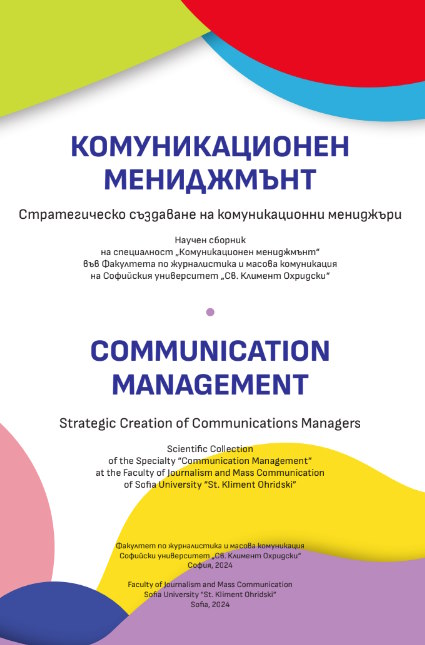Author(s): Vesselina Valkanova,Nikolai Mihailov / Language(s): English
Publication Year: 0
Digitization and technological progress in the last few years have transformed the way we communicate and receive information, and this affects our understanding of the world in a social and cultural aspect. With the dominance of digital and often private media, diverse conceptualizations, typologies, and problematizations of the media environment and media systems, the global picture of the media world becomes problematic. The Bulgarian media environment has been going through dynamic and complex transformation processes in the last two decades, related both to digitalization and the change in the business models of the media, as well as to the different social, cultural, and professional contexts of communications on a global scale. Undoubtedly, the situation of the media, production, and consumption of media content in Bulgaria needs comprehensive, sustained, and focused research. The creation of a Center for Media Studies, which is the goal of the project, will significantly contribute to both researchers and media professionals in Bulgaria and abroad to have a clear picture and a good orientation, which is a condition for a well-functioning media environment in our country. The task that such a project should solve is to create a complete organization for media research in a market environment, its regular conduct, analysis, and meta-analysis of the results, as well as reaching conclusions and generalizations, which are distinguished by a clear conceptual framework, lead to accumulation of new knowledge and are useful for all who are professionally engaged in public communication – journalists, media researchers, teachers, communication specialists.
More...


